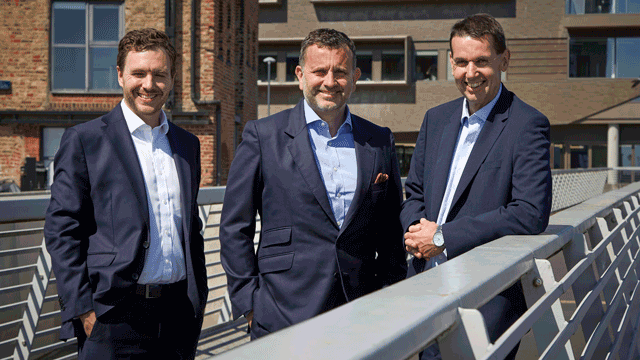Nine months after the UK voted to leave the EU, the process has now begun. The big question for many in the property industry is: “What will happen to real estate?” Many fear that the flow of investment will fall, writes Waheed Nazir, director of planning and regeneraton at Birmingham City Council.
But officials and local authorities have never been solely concerned with the quantity of investment that they can attract: the quality of investment partners matters hugely. Patient long-term capital will always add more value than short-term speculative money.
And that is where Brexit may yet pose an opportunity.
With asset values at all-time highs, property as an asset class has attracted some investors who have taken a tactical approach to maximising annual returns, while bond yields remain low.
The challenge for communities, however, is that a tactical approach to investment often implies a short-termist approach to development.
The concern is often that this approach focuses on constructing buildings, rather than creating places, with firms building to sell without having a stake in the future success of an area. This trend may well boost confidence initially, but is unlikely to contribute to the development of the local community over time.
The simple fact is that Brexit is likely to deter this more speculative approach to development. The two-year negotiation period now under way will focus the minds of investors with shorter time horizons.
From their perspective, it is reasonable to assume that over the next two years occupiers and retailers may think twice before taking on new premises. There may be concerns that the weakness of sterling risks encouraging inflation in construction costs. Access to labour for construction will be uncertain as immigration policy develops and the status of EU nationals is negotiated.
This is not an environment that will attract opportunistic or speculative investment.
Over the longer term, however, the negotiation of our future in the EU will not affect the fundamentals that underpin long-term value: demographics, skills, culture and geography.
While still an ageing society, the UK’s demographic profile is stronger than most other European countries. The UK education system is renowned around the world. Our culture of trade, enterprise and innovation, coupled with a robust and transparent legal system, stretches back through history. Geographically, we remain a hub for global trade and a pivot between Asia and the Americas.
As a long-term investor, this macro picture is very appealing.
That is certainly the case that we are making in Birmingham. The city is the youngest in Europe; a quarter of the population is aged under 15. We have leading universities, a reputation for entrepreneurialism built on our history as the City of 1000 Trades and are at the heart of the UK’s road, rail and air transport networks, with HS2 still to come.
If you have a 10- or 20-year time horizon, those factors add up to a compelling investment case.
What’s more, the signs are that plenty of international investors recognise this.
Mipim this year was a case in point. No-one could afford to be complacent, simply assuming: “If we build it, they will come.” Developers and authorities, agents and sponsors had to work much harder to spell out their arguments for investing in the UK. But when they did, the case was often compelling.
In Birmingham, we were fortunate enough to be able to make our pitch to international investors directly when we hosted part of the recent UK-Qatar investment conference.
Speaking to delegates at the event, Qatar’s finance minister, Ali Sherif al-Emadi made clear that, while Brexit might concern those investing over a three- to five-year timescale, “If you take a longer view on it, we have a lot of confidence in the UK economy.”
Most significantly, the Qataris have pledged to match the words with action by investing £5bn in the UK in the coming years.
Everyone will have a different view of Brexit. The impact will undoubtedly vary by industry sector and by location. If the question is: “What will happen to real estate?” there will be no one single answer.
But nevertheless, our departure from the European Union will soon become a reality, meaning there is a need for pragmatism. If the process acts to deter more short-termist investors while helping to foster long-term strategic partnerships, it can have a significant positive effect.











